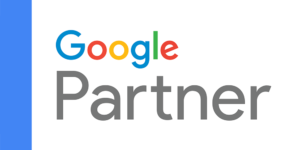Brand isn’t just surviving in the age of AI-powered search—it’s thriving.
At a recent industry talk, a speaker revisited something they’ve been advocating for years: Google favors brands. Not just because it’s convenient, but because it aligns with what users trust. And as search continues to evolve—possibly faster than at any point in the last 25 years—that trust is becoming even more essential.
The takeaway? If you’re in SEO or marketing, focusing on brand isn’t just a nice-to-have. It’s the core strategy.
Google’s Quiet Preference: Brands Users Already Know
This isn’t a new idea. It’s been clear for years that Google tends to surface results from recognizable brands. Why? Because people are more likely to click on what feels familiar. Search isn’t always about discovering something new—it’s often about reconnecting with something you already know and trust.
And when a brand invests in things like TV ads or strong PR? That visibility bleeds into digital behavior. Someone sees a commercial, later searches for a product, and guess which link they’re more likely to click?
In fact, data shows that viewers are about 33% more likely to click on a brand they’ve seen in a TV ad—even if the search query is generic.
Traditional Marketing Moves the Needle (Even in Digital)
Old-school marketing channels—like TV, radio, even billboards—still play a major role in shaping online behavior. People don’t operate in silos. The things they see offline influence how they search, what they click, and who they trust online.
That trust doesn’t come from a keyword-stuffed domain name or being #1 in search results. It comes from brand exposure, consistency, and familiarity. Google responds to that behavior. The algorithm sees which links people prefer and ranks accordingly.
Why SEOs Need to Think Bigger
One of the more eye-opening points from the talk was this: most departments in a company—from PR to social to leadership—understand the value of brand. But SEO? Historically, it’s lagged behind.
That’s a missed opportunity. When SEOs focus purely on technical wins or short-term rankings, they miss the bigger picture—and the bigger budgets.
By aligning SEO with brand-building efforts, marketing teams can secure more executive support, unlock larger investments, and see stronger long-term results. Ask not just “how do we rank,” but “how does this support our brand?”
Search Is Fractured. Brands Anchor the Journey.
Yes, Google still dominates search. But the modern search journey is more fragmented than ever.
People use Bing. They use YouTube like it’s Google. They scroll Pinterest for ideas, Reddit for opinions, Quora for answers. They search Amazon for products and AutoTrader for cars.
And younger users are everywhere—jumping between platforms based on need, habit, and trust. So you need to decide: which platforms matter most to your audience? Where should you invest your energy?
The key is recognizing that Google is just one (albeit important) piece of a broader search ecosystem. Optimizing for different platforms means adapting content and brand strategy to meet users wherever they are.
AI and LLMs Don’t Break the Rules—They Reinforce Them
There’s a lot of buzz right now about optimizing for large language models (LLMs), but the fundamentals haven’t changed much. What works in Google—building brand trust, creating helpful content, staying visible—also works in AI-driven platforms.
These tools prioritize authority, relevance, and recognition. That means the same signals that help in traditional SEO—like backlinks, brand mentions, and real-world engagement—still matter.
The future of search might look different, but the playbook is surprisingly familiar: make things people want, build a brand they remember, and show up consistently.
Starting From Scratch? Go Big on Brand
One question raised during the discussion was, “If you were launching a brand today, how would you build momentum fast?”
The answer wasn’t SEO. It was TV.
Build a solid ecommerce site, invest heavily in TV ads to drive awareness, and layer in PR to build credibility. That might sound old-school, but it’s a strategy grounded in results. TV advertising doesn’t just build visibility—it shapes the perception that drives search behavior.
This approach might seem counterintuitive for a digital-first strategy, but it works because it creates the trust and recognition that fuels everything else.
Full Circle: Back to the Basics
In a way, we’re going back to the basics. Before the internet got gamified. Before black-hat SEO and clickbait headlines. Back when marketing meant making something great and helping people remember it.
We’re rediscovering that real marketing—the kind that builds trust, tells a story, and earns attention—wins out over quick tricks and short-term hacks.
And that’s good news. It means more alignment across marketing teams. More focus on the full customer journey. And better long-term outcomes.
Final Thought: No Matter the Platform, Brand Wins
Whether it’s Google, Bing, YouTube, a Reddit thread, or an AI-powered answer box, one thing remains true:
Brand is the signal that cuts through the noise.
If people know you, trust you, and want more from you—you’ll win the click, the conversation, and the conversion. No matter what search looks like in the future.


Leave a Reply